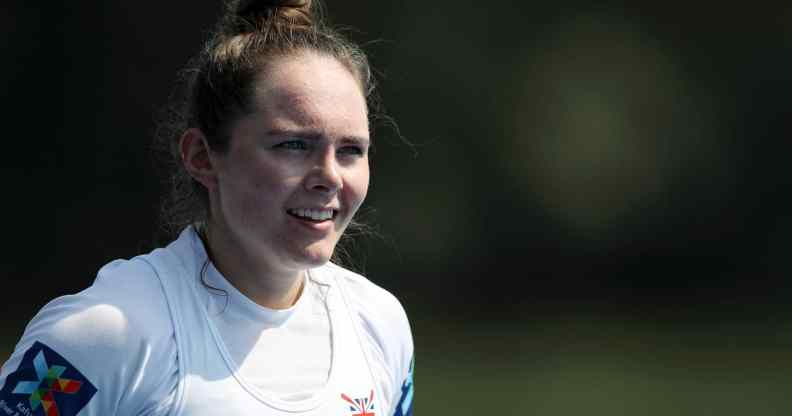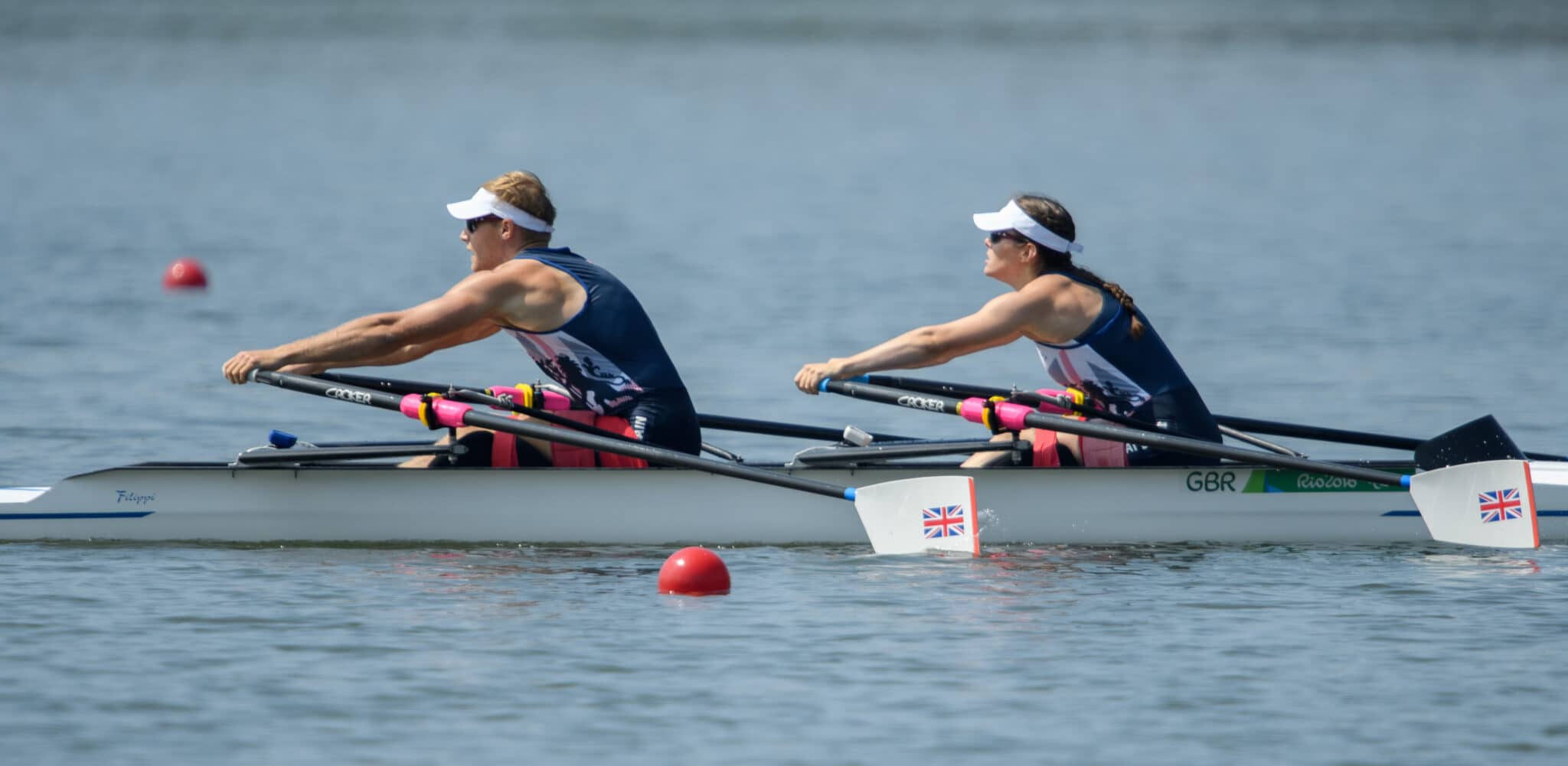Paralympic champion Lauren Rowles wants to be a gay, disabled role model to help kids feel less ‘alone’

Lauren Rowles of Great Britain at the 2019 World Rowing Championships, 2019. (Getty/ Naomi Baker)
Paralympic rower Lauren Rowles has said she wants to be the “gay, disabled role model” she never had, to help kids feel less “alone”.
Rowles, 23, is a British rower who was paralysed from the waist down at the age of 13, and won gold in the trunk-arms mixed double sculls at the 2016 Summer Paralympics in Rio de Janeiro with Laurence Whiteley when she was just 18 years old.
This year, she will be heading to the Paralympics in Tokyo with Team GB, and after coming out last year, it will be her first Paralympics as an openly gay athlete.
Rowles told the Press Association that she struggled to come to terms with both her disability and her sexuality, and this was made worse by the fact that she grew up without any disabled, gay role models.
She said: “One of my favourite quotes is: ‘You can’t be what you can’t see.’
“For me, when I was a kid I never had any role models in my life that were disabled, that were gay, and I grew up learning that if you were disabled you had no life left and if you were gay then you would face the worst and most horrific abuse.
“If when I was younger I had role models – even people on the TV or in the media – I would have felt a lot more at ease.”

Laurence Whitely and Lauren Rowles take the Gold Medal in the trunk-arms mixed double sculls (TAMix2x) final at the Lagoa Stadium during the 2016 Paralympic Games, in Rio de Janeiro, Brazil. (AFP via Getty/ IOC/ THOMAS LOVELOCK FOR OIS)
Lauren Rowles fell into a “deep depression” after winning gold the 2016 Rio Paralympics.
Following the 2016 Paralympics in Rio, Lauren Rowles fell into a “deep depression”, which was worsened by suppressed trauma, persistent injuries and being closeted.
She said: “I fell into a deep hole of feeling quite suicidal for a time and I cried for help from my mum, I said to her: ‘I can’t do this any more, I don’t want to be here.’
“I hadn’t absorbed the trauma that had gone on in my life and I basically just kept going, like youngsters do… I had never taken a step back to go, ‘wow, some pretty bad things have happened to me’ and I struggled with that.”
Now recovered, proudly out, and in a relationship with wheelchair basketball player Jude Hamer, Rowles wants to be the role model she never had.
She has begun mentoring young girls, and added: “I suffered a lot with harassment and abuse on social media when I was younger and I try and talk about my experiences now to make sure that nobody feels alone in their experience.
“If one kid can listen to my experiences and think: ‘I’m not alone’ – I know that would have helped me when I was a kid so I’m trying to do the same now.”

